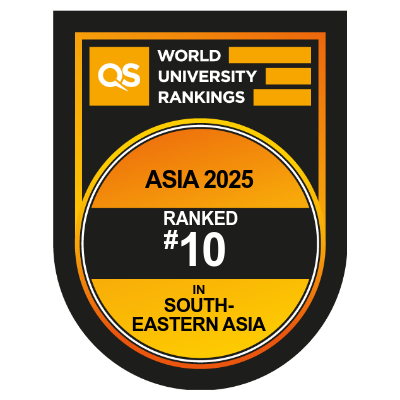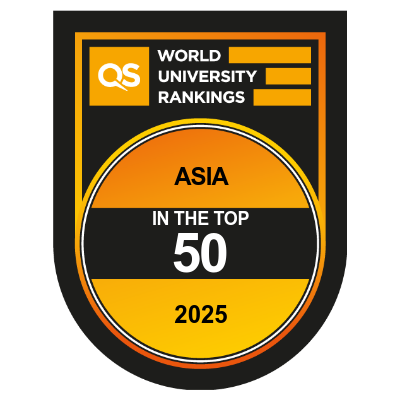sustainable development goal 7
AFFORDABLE AND CLEAN ENERGY
Energy is vital to human existence and should be efficient, sustainable, and renewable. It’s central to global challenges and opportunities, with universal access being crucial. Affordable, clean energy is essential for sustainable development.
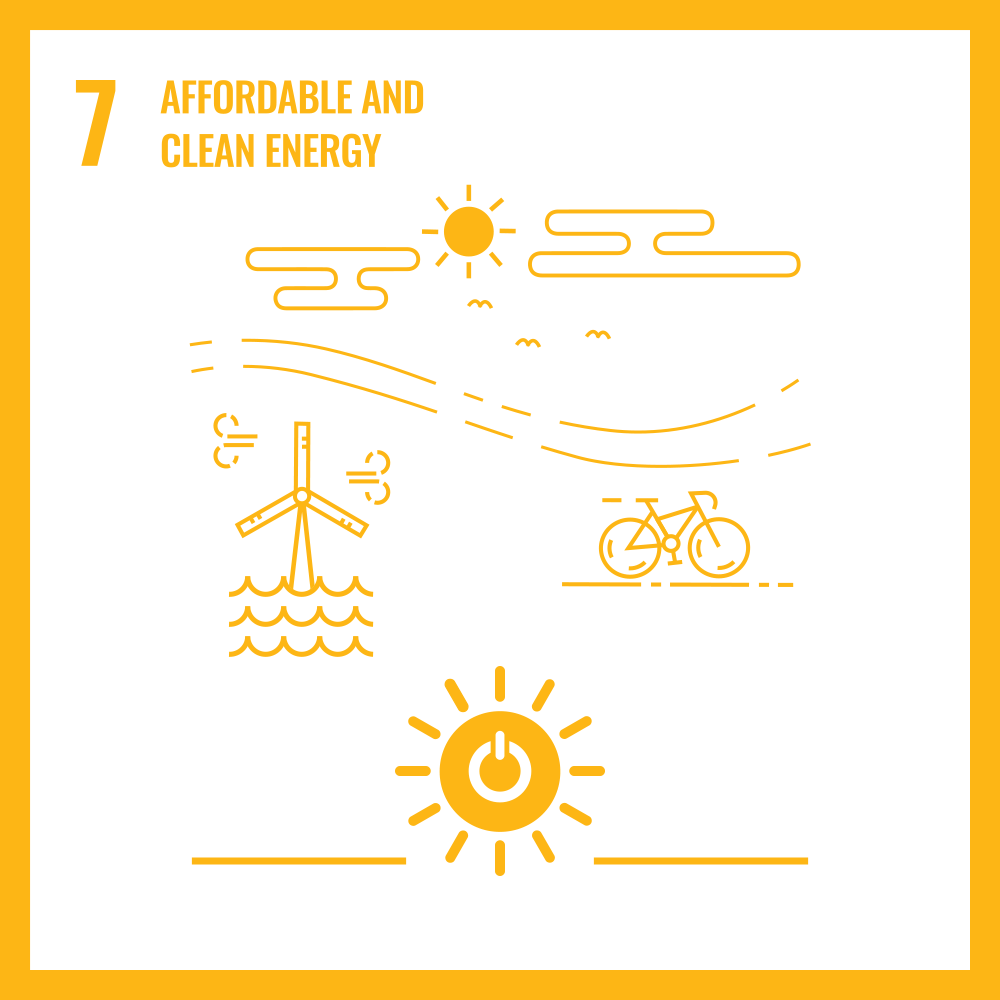
UNIVERSITY MEASURES TOWARDS AFFORDABLE AND CLEAN ENERGY
The University is dedicated to advancing affordable and clean energy, actively implementing sustainable practices, fostering innovative research in renewable technologies, and ensuring energy-efficient campus operations. Its commitment to environmental stewardship and education cultivates a greener, more cost-effective energy future for all.
Indonesia, an archipelago nation graced with a tropical climate, is blessed with abundant sunshine throughout the year. This privilege attracts tourists wishing to enjoy the natural beauty and represents a significant potential in renewable energy. In the current global context, where the energy crisis is a primary concern, the solar energy potential in Indonesia offers new hope.
Solar energy, also known as solar power, holds the potential to be an alternative solution in addressing the energy crisis currently afflicting the world. Solar cell technology allows us to convert solar energy into electricity. Solar panels, commonly seen on the roofs of houses or other buildings, transform solar energy into electrical energy by absorbing sunlight. Although this process appears simple, it is a revolution in the energy sector. Once solar energy is converted into electrical energy by solar panels, this energy is stored in batteries. The advantage of this storage system lies in its flexibility. With batteries, the electrical energy derived from the sun can be utilized even at night or during rainy conditions. Even though Indonesia has a long rainy season, the system can still operate optimally. Such reliability is undoubtedly an added value in the utilization of solar energy.
Furthermore, this energy source has other significant advantages: being environmentally friendly. Solar energy is clean and sustainable, unlike fossil fuels that produce pollution and trigger global warming. There are no greenhouse gas emissions, no hazardous waste, and, most importantly, no fuel that needs to be mined or extracted at the expense of the environment. Recognizing this substantial potential, the Universitas Indonesia (UI) has not remained idle. As an institution of higher education always at the forefront of innovation and sustainable development, UI has responded swiftly. This is reflected in the policy outlined in the Rector’s Decree number 1310. This document underscores the energy conservation program at the UI campus. Not merely as an act of social responsibility, this policy is also a strategic step in making UI an environmentally conscious university. Emphasizing the importance of energy efficiency standards, every renovation or new construction on the UI campus must meet specific criteria. This initiative is further reinforced by the Regulation of the Board of Trustees of UI Number: 001/Regulation/BOT-UI/2015, which details the vision for developing UI’s facilities and infrastructure. The primary focus is the orientation towards environmentally friendly development, supported by internal control systems and risk management.
Rector’s Decree Number 1310 of 2011 Regarding Energy Conservation on Universitas Indonesia Campus
Not only at the university level, but the Faculty of Medicine at the Universitas Indonesia also implements energy efficiency policies within its Green Building Policy. This is reflected in the construction and renovation of spaces within the Faculty of Medicine at UI. Meanwhile, the Faculty of Mathematics and Natural Sciences at UI demonstrates its commitment by adopting eco-friendly building concepts in the Pertamina Multi-Disciplinary Laboratory and Canteen and Prayer Room building. The Faculty of Psychology is not left behind, with renovations of its two canteens focusing on energy efficiency. The Faculty of Humanities also contributes by installing 5KWp solar panels at several points within the faculty.
Indonesia, situated on the equator, enjoys a strategic geographical position that offers special advantages in solar energy utilization. This abundant energy source reflects the nation’s natural riches and provides opportunities to exploit environmentally friendly renewable energy potential.
The world has witnessed the adverse effects of using conventional energy sources in recent years. Air pollution, global warming, and climate change have become global issues that can no longer be ignored. Given these impacts, transitioning to more sustainable energy sources is not just an option but a necessity. Solar energy, as one of the forms of renewable energy, offers a promising solution to address these problems.
The constant presence of the sun throughout the year in Indonesia means that the potential for solar energy in the country is immense. If managed properly, this energy could reduce the nation’s reliance on fossil fuels, the primary energy source until now. Additionally, solar energy does not produce greenhouse gas emissions that can lead to climate change, making its use beneficial for the environment. Recognizing this great potential, Universitas Indonesia (UI), one of Indonesia’s leading educational institutions, has taken proactive steps. UI is not only focused on education and research but is also committed to being a model in applying sustainable concepts. Therefore, the university has formulated a strategic plan to enhance energy efficiency across all campus buildings.
This plan is not just a concept on paper. UI is diligently ensuring that every building on its campus is designed with energy-saving principles. From architectural designs that maximize the use of natural light and eco-friendly building materials to the implementation of advanced technology to control energy consumption, one of the main focuses of this plan is the integration of solar panels into the building structures. Consequently, each building is not only capable of generating energy for its own needs but also has the potential to contribute excess energy to the campus electrical grid. In the long run, this step is expected to reduce the burden of energy consumption from conventional sources.
Furthermore, by implementing energy efficiency principles, UI hopes to contribute to global efforts to reduce carbon emissions actively. Carbon emissions are one of the leading causes of climate change, which harms life on Earth. Therefore, every step to reduce these emissions is important, no matter how small. In a broader context, the steps taken by UI are expected to inspire other institutions, both in Indonesia and abroad. By demonstrating that the utilization of solar energy is not merely a theoretical concept but can be applied in daily life, UI hopes to encourage the public to be more environmentally conscious and actively participate in efforts to preserve the earth.
- Universitas Indonesia’s I-CELL Building Receives Award
- Universitas Indonesia’s Solar Power Generation Data for 2022
In concrete actions, the Faculty of Public Health has implemented a number of energy efficiency efforts within the faculty environment. These range from replacing conventional electronic equipment with energy-saving alternatives to implementing policies for turning on and off equipment according to need. Moreover, the Faculty of Public Health has also installed solar panels as a renewable energy source, with a maximum capacity reaching 12 kWp. The Faculty of Psychology is no less progressive in this regard. Two canteens the faculty owns have been renovated with an environmentally friendly concept that utilizes natural light.
Additionally, the faculty has installed energy-saving electronic devices and a renowned efficient Heating, Ventilation, and Air Conditioning (HVAC) system. Motion sensors as light sensors are also one of the innovations applied to save electricity, especially in areas that are infrequently visited. These steps demonstrate the seriousness of UI, particularly the Faculty of Public Health and the Faculty of Psychology, in actively contributing to environmental preservation through energy efficiency efforts.
The Universitas Indonesia (UI) has long been recognized as one of Indonesia’s most prestigious educational institutions. However, its reputation is not limited to academic excellence alone. UI is also known for its strong commitment to environmental preservation and efforts to reduce the impact of climate change. As concrete evidence of this commitment, UI issued a Rector’s Decree number 1310, a legal framework establishing an energy conservation program within the campus environment. The energy conservation program launched by UI is not just a slogan or promise on paper. Instead, it is a comprehensive strategy designed to integrate principles of environmental preservation into the daily life of the UI academic community. This program encompasses various aspects, from energy usage policies and procuring environmentally friendly goods and services to promoting a sustainable lifestyle among students, faculty, and staff.
Rector’s Decree Number 1310 of 2011 on Energy Conservation at Universitas Indonesia Campus
One of the most crucial parts of this program is the engagement and active participation of the entire academic community. Each faculty and department is given autonomy to formulate and implement their initiatives to support this energy conservation program. Moreover, several faculties have set exemplary models in this regard. For instance, the Faculty of Dentistry has taken proactive steps to ensure that all equipment used in practice and research is electricity-efficient. The faculty has significantly reduced electricity consumption by replacing old appliances with newer, energy-saving models. Additionally, awareness of the importance of energy efficiency has been incorporated into the faculty’s educational curriculum, ensuring that the new dentists will understand environmental preservation’s importance.
On another front, the Faculty of Mathematics and Natural Sciences (FMIPA) at UI is also making strides. Known for its strong tradition in research and innovation, the faculty combines this expertise with a commitment to the environment, having implemented various initiatives to make their faculty greener and more sustainable. One of the most notable efforts is adopting emission-free vehicles within the faculty premises. By promoting the use of these vehicles, FMIPA aims to reduce the carbon footprint generated by transportation activities within the faculty. These steps are, of course, just the beginning. With the growing awareness of climate change and its impact on our lives, it has become the responsibility of every individual and institution to contribute to mitigation efforts. The Universitas Indonesia, through its energy conservation program, has demonstrated that with strong commitment, innovation, and collaboration, we can effect positive change for our planet.
However, these efforts would be meaningless without the support of the entire UI community. Therefore, one of the critical aspects of this program is the education and environmental awareness campaigns among students, faculty, and staff. By providing them with the knowledge and tools needed to make more sustainable choices in their daily lives, UI hopes to encourage a broader change in societal behavior. Through these initiatives, Universitas Indonesia aspires to be a model for other educational institutions in Indonesia and worldwide on how to integrate sustainability principles into daily operations because education is not just about equipping the next generation with knowledge and skills but also about building the character and values necessary to create a brighter and more sustainable future for us all.
The Universitas Indonesia (UI), standing firm as a pillar of higher education in the nation, has long been known for its academic achievements and dedication to environmental sustainability. In response to the increasingly felt global warming and climate change challenges, UI has taken decisive steps through various initiatives reflecting a deep environmental consciousness. This commitment is not merely a matter of discussion but has been outlined in the Rector’s Decree No. 1310 of 2011 on Energy Conservation at the Universitas Indonesia Campus. This decree serves as a legal foundation and guideline for the academic community to participate in energy conservation efforts actively.
Recognizing the importance of energy as a limited resource, UI invites its entire community, from students and faculty to staff and stakeholders, to join together in reducing energy consumption. This initiative stems from UI’s vision of a campus that excels in education and environmental preservation. With this energy conservation program, every aspect of campus life, from lighting and electronic equipment use to building management, is now directed towards energy saving. Furthermore, UI strives to educate all its members about the importance of an energy-efficient lifestyle through various seminars, training sessions, and environmental awareness campaigns.
As one of the leading universities in Indonesia, UI clearly understands its role as an agent of change. They hope that through these policies and energy conservation programs, UI can set an example for other educational institutions in Indonesia to actively contribute to our Earth’s sustainability. With a spirit of innovation and collaboration, UI is confident it can create an environmentally friendly and sustainable campus environment for future generations.
Rector’s Decree Number 1310 of 2011 on Energy Conservation at Universitas Indonesia Campus
As an integral part of the institution, the Faculty of Mathematics and Natural Sciences at the Universitas Indonesia actively supports this policy. With the issuance of the Faculty of Mathematics and Natural Sciences UI policy number SE-55/UN2.F3.D/OTL.00/2022, this faculty has established a series of concrete steps within the energy conservation program. These efforts include replacing fluorescent tube lights with more energy-efficient LED lights, utilizing energy-saving computers, especially in Computer Labs, and installing automatic switches for lighting systems and temperature control. These measures are tangible evidence of the serious commitment of the Faculty of Mathematics and Natural Sciences UI to achieving the energy-saving target of up to 100%.
Meanwhile, the School of Environmental Sciences and Strategic and Global Studies are also not lagging in efforts to reduce energy consumption. Both have set energy efficiency plans, including installing motion sensors and LED lights and applying solar-powered lights. These air conditioners have been certified for efficiency by the Ministry of Energy and Mineral Resources, water faucets with push systems, and solar panels as an alternative energy source. With well-planned and implemented strategies, both schools hope to serve as examples of energy savings and carbon emission reduction within the Universitas Indonesia community.
The Universitas Indonesia (UI) has long been recognized as an institution of higher education that focuses on quality education and research and commits to environmental issues. As a pioneer among Indonesian universities, UI has initiated a green movement by prioritizing energy conservation as a primary contribution to environmental sustainability. The Rector’s Decree No. 1310 of 2011 is not just an administrative document; it manifests UI’s earnestness in ensuring that every corner of the campus contributes to energy efficiency. The initial step was a comprehensive energy consumption review across various campus facilities. This review aimed to identify where energy wastage occurs so that concrete steps could be taken to minimize it.
As a university that plays a crucial role in shaping the nation’s future, UI recognizes that physical campus development must align with sustainability principles. Therefore, every construction and renovation plan now refers to Green Building standards. By adopting these standards, UI ensures that each building erected is functional and environmentally friendly. In its implementation, the Faculty of Medicine at UI has been one of the most proactive faculties. Even before significant steps were implemented across the campus, this faculty had already begun initiatives by identifying how Green Building principles could be integrated into their daily operations. This reflects the high dedication and environmental awareness among the academic community of that faculty.
Rector’s Decree Number 1310 of 2011 on Energy Conservation at Universitas Indonesia Campus
The Faculty of Economics and Business at the Universitas Indonesia (UI) has not been left behind in these efforts. In 2022, this faculty replaced old electrical equipment with more energy-efficient devices. For example, conventional air conditioners were replaced with inverter air conditioners. With a total replacement of 92 horsepower (HP) of air conditioning, an estimated energy saving of up to 30% was achieved. Assuming the conventional air conditioner uses about 800 watts per HP, the inverter air conditioner can save up to 240 watts per unit.
Consequently, the total savings amount to approximately 22,080 watts. Furthermore, the faculty has also installed automatic switches for all garden lights and street lamps to enhance efficiency. As concrete evidence of these efforts, there is a photo of a timer installed on the electrical panel, which functions to control the on and off times of the street lighting and garden lights within the faculty’s environment. These initiatives demonstrate UI’s commitment to a green and sustainable campus.
Universitas Indonesia (UI) is taking proactive steps to reduce its reliance on oil and promote sustainability within its campus and the local community. This commitment is reflected in the university’s policies and initiatives aimed at reducing coal waste and oil usage, as well as promoting environmentally friendly transportation options.
One noteworthy initiative undertaken by UI is the development of innovative technologies by its students to address coal waste and oil usage challenges. For instance, UI students have created a cutting-edge technology capable of transforming coal waste into reusable fuel. This innovation not only addresses the issue of coal waste disposal but also contributes to reducing the demand for conventional fossil fuels. By actively involving its students in such research and development projects, UI fosters a culture of innovation and environmental stewardship among its academic community.
In addition to technological advancements, UI is committed to reducing its carbon footprint and oil usage through eco-friendly transportation solutions. One notable effort in this regard is the provision of bicycles and electric scooters for intra-campus transportation, which are made available for free to UI campus community members. This initiative encourages sustainable commuting options and helps reduce the overall demand for oil-based transportation within the campus.
Furthermore, UI is actively involved in the development and deployment of electric vehicles (EVs) to meet public transportation needs. Currently, UI has several electric vehicles in operation on its campus, including buses, cars, and motorcycles. These EVs not only serve as a convenient mode of transportation for the university’s stakeholders but also demonstrate UI’s commitment to adopting cleaner and more sustainable alternatives to traditional gasoline-powered vehicles.
The introduction of electric vehicles into the campus’s transportation infrastructure represents a significant step toward reducing carbon emissions and decreasing the reliance on oil. EVs produce zero tailpipe emissions, making them an environmentally friendly choice that aligns with UI’s sustainability goals.
UI’s initiatives to reduce oil usage and promote sustainability extend beyond its campus boundaries. The university actively shares its technological innovations and environmentally friendly practices with the local community. By doing so, UI plays a crucial role in disseminating knowledge and solutions that benefit the broader society
Policies Regarding Environmental Protection and Management, Sustainable Development
The Universitas Indonesia (UI) has long been recognized as one of the leading higher education institutions at the forefront of various innovations and research. Its academic credibility is beyond doubt, but UI is more than just a center of knowledge. Beyond this, the university understands its social responsibility to impact the surrounding environment positively. In the past few decades, environmental issues and sustainability have become topics of increasing attention worldwide. Recognizing the importance of these issues, UI is determined to contribute tangible solutions. One method UI chose to demonstrate its commitment to these issues is by introducing environmentally friendly technology within its campus environment. One notable initiative UI has implemented is launching a solar-powered LED lighting program in the Dragon Fruit Garden. 38 LED lights are strategically placed to illuminate four rows of flourishing dragon fruit. Moreover, this lighting technology is designed for high efficiency, thus providing optimal illumination with minimal energy consumption.
However, the benefits of this program are not limited to lighting alone. By harnessing solar energy, UI has successfully reduced reliance on conventional energy sources. This, of course, has a significant impact on cost savings. It is estimated that with the implementation of this technology, UI can save up to IDR 2.1 million in electricity costs per year. This program also serves as a symbol of UI’s commitment to promoting clean and renewable energy adoption. The successful implementation of solar-powered LED lighting in the Dragon Fruit Garden is tangible evidence that environmentally friendly technology can be applied on a real scale and offer concrete benefits.
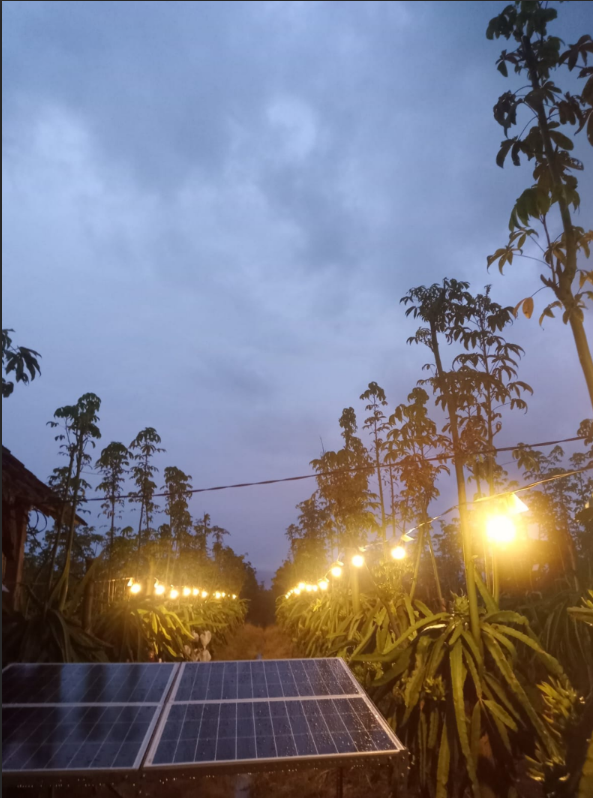
The School of Strategic and Global Studies (SKSG) at the Universitas Indonesia (UI) is also actively engaged in community service. In 2022, through the American Area Studies Program, the School of Strategic and Global Studies held training sessions that included digital marketing, renewable technology, and using solar-powered carts. The purpose of this program was to enhance the quality of life for the residents of Sapit Village in East Lombok and the local micro, small, and medium enterprises (MSMEs), in line with the smart green campaign promoted by the School of Strategic and Global Studies.
Meanwhile, the School of Environmental Science at UI (SIL UI) demonstrated its concern for environmental issues by taking concrete steps to address the waste problem. Through its community service program, the School of Environmental Science at UI introduced technology for processing household food waste, offering innovative solutions to reduce the amount of waste produced and simultaneously providing benefits for the community around the campus. These initiatives reflect UI’s commitment to environmental sustainability and community empowerment.
- School of Strategic and Global Studies Conducts Community Service in Sapit Village, East Lombok
- School of Environmental Science at Universitas Indonesia Shares Household Food Waste Processing Technology Innovations
- To Address Waste Issues, Universitas Indonesia Introduces Household Food Waste Processing Technology
- School of Strategic and Global Studies Continues the Smart Green Campaign Program 2022
In today’s world, energy and sustainability issues dominate the global discourse. The increasing dependency on fossil fuels affects the economic stability, environment, and social issues in many countries, including Indonesia. As a country with a large population, Indonesia’s reliance on fossil fuels is becoming more pronounced. The high energy demand, particularly electricity, indicates that alternative solutions are necessary to meet the continuously growing needs. However, despite the formidable challenges, hope arises from the academic community. Scientists, researchers, and students in Indonesia are not merely spectators. They actively seek solutions, innovate, and develop ideas to address these crucial issues. At the forefront of these innovations stands the Universitas Indonesia (UI), with a long history of dedication to science and innovation.
UI, known as one of the leading educational institutions in the country, has made significant strides through its research. In the 35th National Scientific Week of Students (PIMNAS), UI demonstrated that they are focused on theory and practical application. Two UI student teams successfully presented innovative concepts relevant to future challenges. The “Energy Independent House” is one concept that captivated many. This idea of an energy-self-sufficient dwelling reflects a future vision where every home no longer depends on conventional energy sources.
Moreover, the “Star City: An Underwater City” idea shows that UI is also considering long-term solutions to the challenges posed by climate change and rising sea levels. The design of this futuristic city offers a new perspective on how we can live in harmony with nature while addressing environmental challenges. The success of both teams reflects UI’s dedication to pushing the boundaries of knowledge. More than that, this achievement proves that Indonesia’s young generation is visionary and ready to take part in creating a better future. This signifies that, despite the magnitude of challenges, solutions can be found and realized with hard work, innovation, and collaboration.
- Energy-Independent Housing Area Integrated with Solar Panels to Piezoelectric, an Idea to Realize Sustainable Development Goals from UI Engineering Students
- Renewable Energy-Based Housing Concept and Underwater Futuristic City Innovations
Furthermore, the Faculty of Public Health at the Universitas Indonesia has also made a tangible contribution to using renewable energy. By installing solar panels at various locations on campus, such as the parking area near the canteen and the rooftop of Bougenville Park, the Faculty of Public Health at the Universitas Indonesia demonstrates its commitment to energy sustainability. The installed solar panels have a total capacity of about 12 kWp and have successfully generated approximately 6,587 kWh of energy during 2022. This illustrates a concrete step in maximizing the potential of renewable energy and serves as an example for other sectors to follow a similar path.
The commemoration of Youth Pledge Day always stands as a significant moment in Indonesia’s national calendar. Celebrating October 28, 2022, this year’s observance was given special additional meaning with a series of events held by the Alumni Energizing Indonesia Forum Association from the Department of Petrochemical Gas Engineering, Faculty of Engineering, Universitas Indonesia. In its ninth year, the forum chose this moment to celebrate various activities that have a profound and relevant impact on society.
Emphasizing the importance of discussions on energy resilience and planning transitions towards implementation, a series of international seminars, educational events, and discussions on social issues were successfully held. Given the urgency and relevance of these topics, the events received high enthusiasm from various parties. These discussions highlighted the challenges and opportunities in building energy resilience in Indonesia and concrete steps in formulating plans and strategies towards practical implementation. The International FEI Seminar 2022 was the highlight event at the Manhattan Hotel in Kuningan, South Jakarta. This seminar carried a highly current theme: developing the smart city concept for the Nusantara Capital City. This theme reflects the future vision of sustainable, efficient, and technology-oriented urban development. By featuring experts, practitioners, and relevant stakeholders, the event served as a platform for productive discussion on how the smart city concept can be realized in the context of the Nusantara Capital City.
In line with this spirit, the Public Relations Study Program, Vocational Education Program, Universitas Indonesia, in collaboration with PT Pertamina Gas Negara, Tbk, hosted a webinar titled “Realizing Energy Resilience Through the Role of the Younger Generation”. This collaboration proves the university’s support in building the nation’s energy resilience.
With a similar mission, the Society of Renewable Energy, Universitas Indonesia (SRE UI), in synergy with the Career Development Center, Faculty of Engineering, Universitas Indonesia (CDC FTUI), held Career Talk 2022 with the theme Energizing the Future, Energizing the Youth. At the pre-event held on March 16-17, 2022, several prominent speakers, such as Raymond Chin, Amira Bilqis, and Fitrian Ardiansyah, were invited. In these discussions, the participants, most students, and SRE UI members gained insights into investment opportunities in the Green Industry sector and its challenges.
As a strategic step, the Universitas Indonesia (UI) and the Massachusetts Institute of Technology (MIT) plan to strengthen their collaboration. UI, represented by the Vice-Rector for Academic and Student Affairs and the Dean of the Faculty of Engineering, visited the MIT campus, one of the best universities in the world. In that meeting, the two institutions discussed plans for research collaboration, especially in the field of energy, and also strengthened global cooperation between UI and other renowned universities worldwide.
As one of Indonesia’s educational and research centers, the Universitas Indonesia (UI) consistently plays an active role in contributing ideas and solutions for the nation’s development. Amidst the proceedings of the G20 Summit in 2022, UI demonstrated its dedication by presenting the book “Collection of Policy Briefs by the Universitas Indonesia for the 2022 G20 Indonesia Presidency.” This book’s submission expresses UI’s concern in providing policy recommendations that are hoped to enrich the discussions at this international forum.
One of the faculties at the Universitas Indonesia (UI), the Faculty of Engineering, has also been innovating by establishing the Tropical Renewable Energy Center (TREC) in 2015. As a research center, TREC focuses on applying renewable energy that aligns with the tropical conditions of Indonesia. Through collaboration across concentrations, TREC contributes to advancing sustainable renewable energy technologies. Through various research projects, TREC aims to create solutions for crucial environmental and energy problems of the 21st century, particularly for Indonesia. In the context of vocational education, the Universitas Indonesia, through the decision of the director of the vocational education program, has established support for the green campus program. This is stipulated in the Decree of the Director of the Vocational Education Program of the Universitas Indonesia Number 114 of 2018 concerning Support for the Green Campus Program. This reaffirms UI’s commitment to fostering an education that is responsible towards the environment and sustainable.
- Tropical Renewable Energy Center (TREC) UI
- Decree of the Director of Vocational Education Program of Universitas Indonesia Number 114 of 2018 on Support for Green Campus Program
Energy is one of the crucial supporting factors for human life. How energy is produced, utilized, and managed impacts many aspects of human life, including well-being, sustainable development, and environmental effects. Therefore, every individual, community, and nation must strive to ensure that the available energy is efficient, sustainable, and renewable. The Universitas Indonesia, through various initiatives and programs managed by its faculties, continues to endeavor to contribute to achieving a sustainable energy vision for Indonesia.
Directorate of Research and Development: Policy development for clean energy technology
The Universitas Indonesia (UI) is well-known as one of the highest educational institutions in Indonesia, continuously promoting innovation and research. To foster a spirit of entrepreneurship and innovation in its academic community, UI has launched a program called UI Incubate. This program is designed to nurture innovation-based startup companies initiated by UI’s lecturers, students, and alumni. Before becoming a part of UI Incubate, participants are taught the basics of entrepreneurship through various pre-incubation programs. Those who successfully pass the selection stage are allowed to refine their ideas and products through a structured incubation program.
- UI Incubate 2022 Socialization
- UI Provides Education on Plastic Bottle and Liquid Waste Management in Campus Environment
In addition to focusing on innovation, the Universitas Indonesia (UI) is also deeply committed to environmental sustainability. This is evident from the educational efforts made by UI regarding the management of plastic and liquid waste on campus. Furthermore, the Universitas Indonesia contributes to international events, such as the G20 Summit, by presenting the Red and White Electric Bus as a tangible manifestation of Indonesia’s commitment to realizing a better and sustainable environment.
To promote innovations created by its academic community, the Faculty of Engineering at the Universitas Indonesia regularly holds exhibitions showcasing innovative works. This exhibition serves as a platform for appreciating the dedication of researchers and innovators at the Faculty of Engineering at UI. Through these exhibitions, the general public can directly view various leading products the Faculty of Engineering developed physically and virtually. The hope is that these innovations will inspire and benefit the wider community and can be adopted by the industry for implementation on a larger scale, both nationally and internationally.
ENERGY AND THE COMMUNITY
The bond between energy and community is vital. Local initiatives focus on ensuring reliable, sustainable energy sources to empower and uplift communities. Collaborative efforts aim to educate on conservation, harness renewable energies, and invest in infrastructure that supports the community’s economic and social well-being through clean energy solutions.
Get to Know Us
News Related to Us
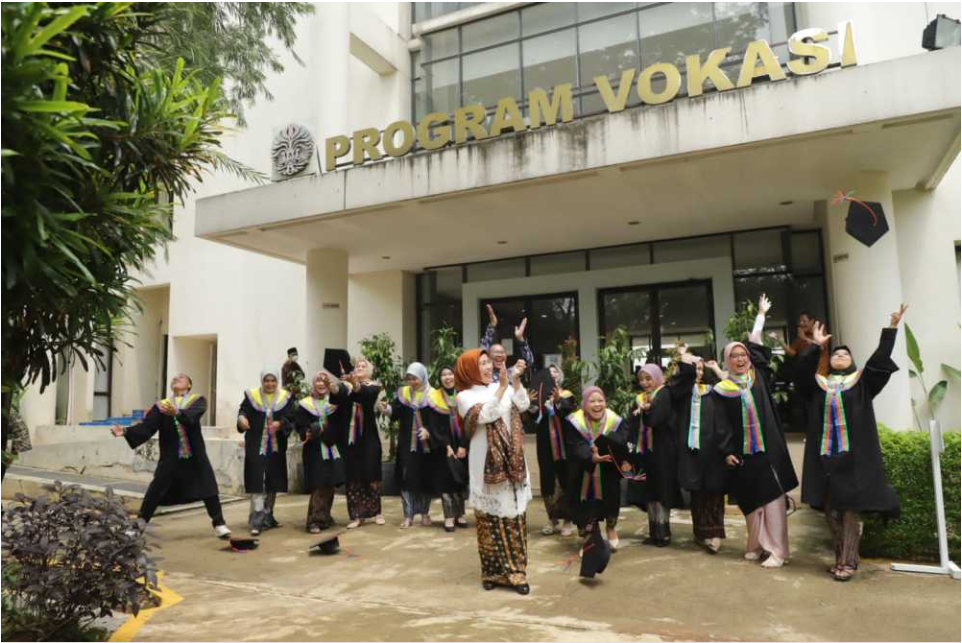
A total of 13 students who won the Serang Regency Government Vocational scholarship at the University of Indonesia graduated and immediately went to work at the Dr. Drajat Prawiranegara Hospital (RSDP).
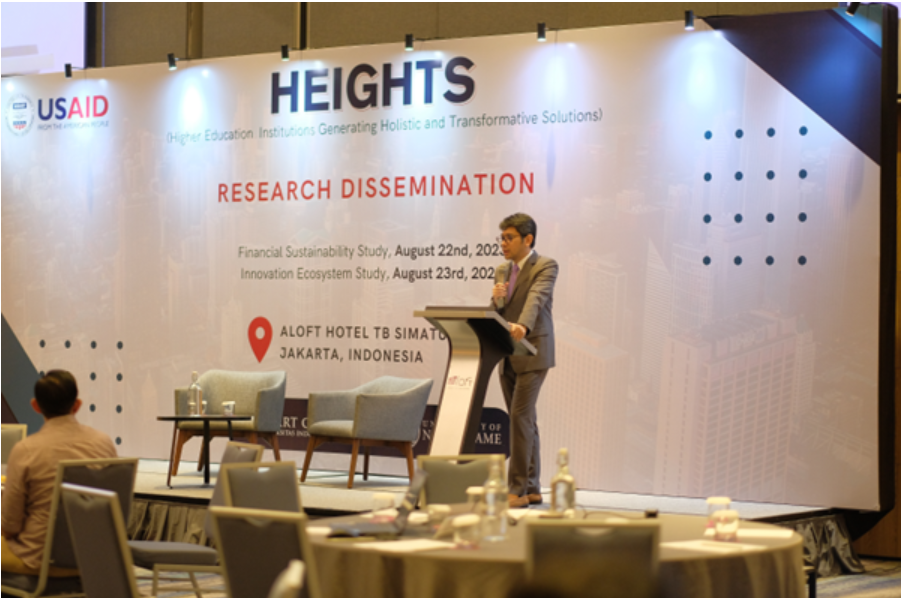
Smart City Universitas Indonesia (UI) collaborated with the University of Notre Dame and the United States Agency for International Development (USAID) to conduct research on the role of universities in creating a dynamic agricultural innovation ecosystem in West Java.

The Faculty of Social and Political Sciences UI, as an implementation of the Tri Darma of Higher Education, organizes integrated social programs through sports activities. It is a Badminton Championship event organized by FISIP which is attended by 511 badminton athletes.

